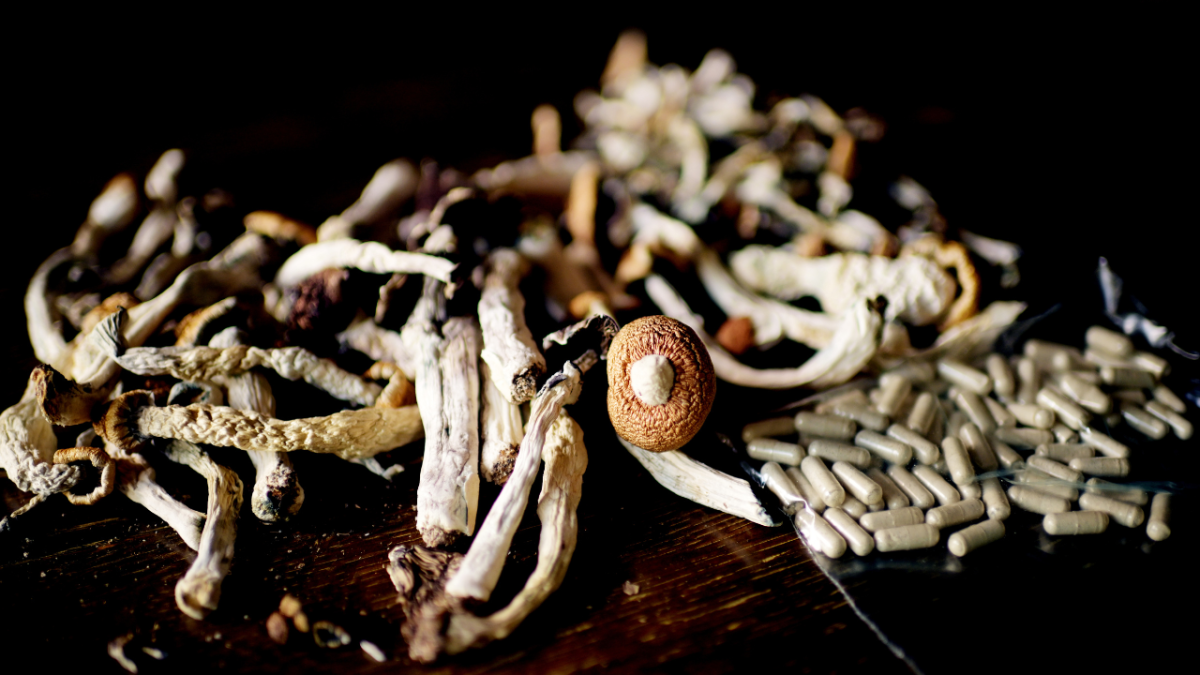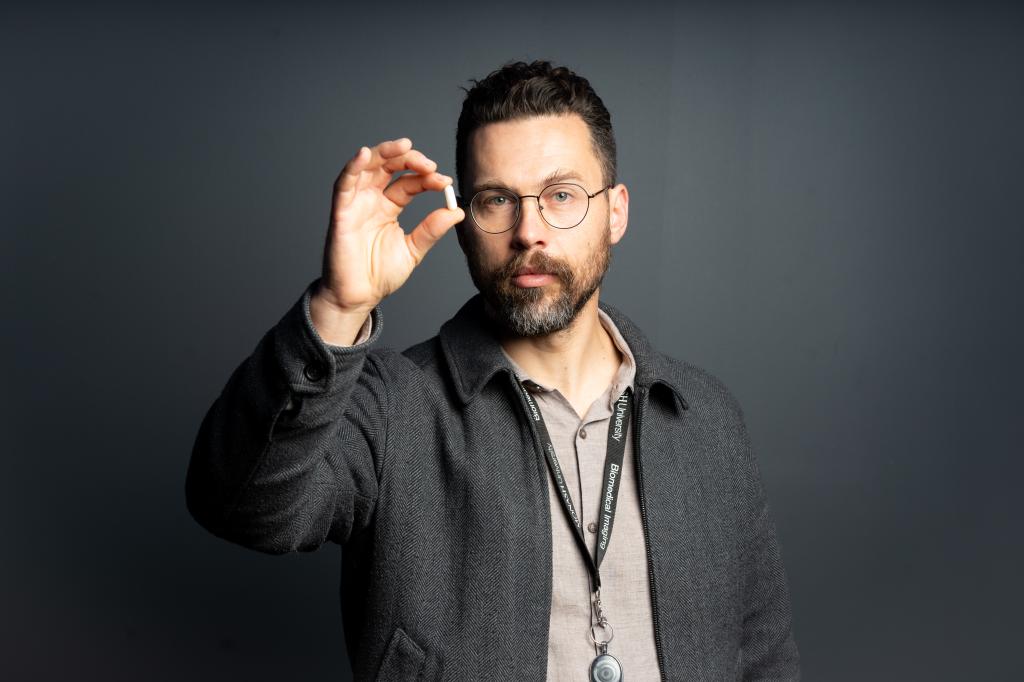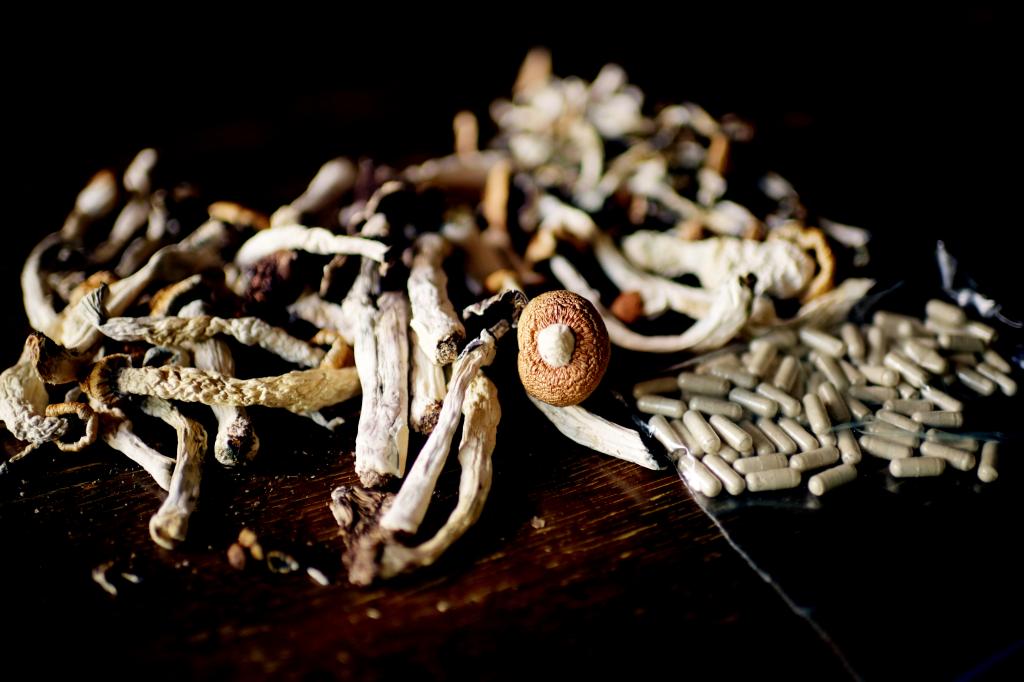
Many Aussies have had experiences with psilocybin, or more commonly, magic mushrooms. Although they’re technically illegal for the everyday punter, when there is a will, there is a way. In fact, according to the 2022-2023 National Drug Strategy Household Survey, there was a huge increase in hallucinogen usage with the number almost doubling from 300,000 in 2019, to 500,000 people in 2023.
But while many of us know them as a recreational drug used to connect with nature or make club lights look a little bit zestier, the psychedelic abilities of psilocybin have been heralded as the next frontier for the treatment of a range of mental health disorders. And as it happens, Australia’s Monash University is leading the charge.
However, their treatment is a little bit different to mixing up a mushie tea and waiting for the world to spin.
Dr Paul Liknaizky and his multidisciplinary team at the Clinical Psychedelic Lab at Monash University have created the country’s first laboratory dedicated to research and facilitating the use of psychedelic therapies. Through their purpose-built facility, the team aims to pave the way for the use of psychedelics in treating mental health disorders and formulating the best clinical practice for therapists of the future who utilise this type of treatment.

In SBS’s latest documentary, Psychedelics: Stepping into the Unknown, we follow along with Paul, his team and willing participants as they take part in a two-year clinical trial which uses psilocybin — along with specific and targeted therapy treatment —to treat Generalised Anxiety Disorder.
The results of the world-first clinical trial have been incredibly promising. However, while Paul and his lab are definitely on to something exciting with their highly specialised treatment, the general public still has a lot to learn about what psilocybin treatment really entails.
So when the opportunity to document their trial through a doco popped up, Paul saw it as a chance to increase awareness of psychedelic-assisted therapy amongst the public and professional communities.
“My primary interest is in developing and testing novel therapies,” Paul told PEDESTRIAN.TV.
“In the case of psychedelics, there are just a whole set of misunderstandings about what it is we’re doing and how we do it. And those misunderstandings can impact the way the healthcare community makes decisions about psychotherapies and it can also impact the expectations that help seekers might have in the community about what the treatment entails and what the outcomes are.”
In 2023, the Therapeutic Goods Administration permitted medicines containing MDMA and psilocybin to be prescribed by authorised psychiatrists for people with particular health conditions. While this was an exciting shift, Paul admits it happened a lot sooner than he expected, and the headlines and growing hype that stemmed from the changes created a whole new host of misunderstandings surrounding the treatment.
“The biggest misunderstanding is that the principal component of the treatment is a drug,” he explained.
“Of course, the drug is what captures people’s imagination and catches the headlines. But what we’re delivering in clinical trials is a form of augmented psychotherapy.”

As a generalised anxiety sufferer myself, a part of me wondered whether everyday people could replicate any form of the treatment without the formalities of heading into his lab. But, as you’d expect, Paul says it’s not even close to the same thing.
“While there may be some good outcomes for some individuals who self-medicate with psychedelics, it is not at all the same thing that we’re doing in clinical trials,” he said.
“When you self-medicate with magic mushrooms, the safety and effectiveness profile of that kind of activity is completely different and far less understood.”
Paul also suggests that people don’t make the mistake of comparing the work they’re doing at Monash University with self-medicating and assuming that they can get the same results.
“Really, it’s far more risky. The potential benefit is likely to be far less reliable, and it’s also just quite unknown,” he explained.
So, basically, don’t dial up your mushie guy just yet.
Although Paul says that the research has a long way to go, he hopes that people watching at home — whether you’d consider this type of therapy or not — can see the potential that psychedelic therapies have to change people’s lives.
“My hope when people watch this documentary is that it is clear that psychedelic therapies have remarkable potential and at the same time require considerable care,” he stated.
“These treatments don’t represent a simple one-and-done, but our hope is that psychedelic therapy for most people can offer a very impressive leg up and the beginning of a kind of virtuous cycle of learning and improvement over the longer term.”
Psychedelics: Stepping into the Unknown, the final instalment in the new season of SBS’s Australia Uncovered documentary collection, premieres on Thursday, 29 February on SBS and SBS On Demand at 8:40pm.



